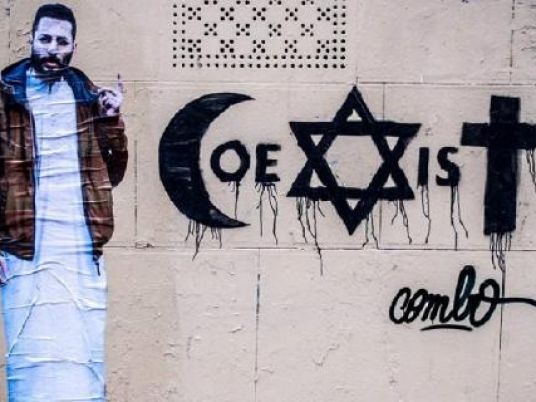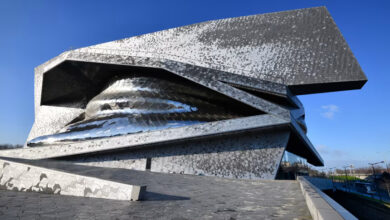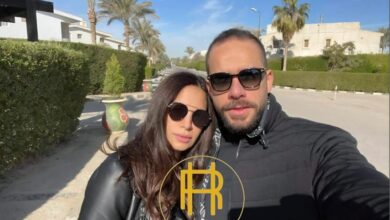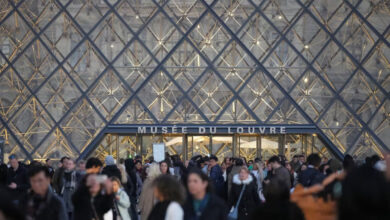
Born in the northern French city of Amiens to a Lebanese Christian father and a Moroccan Muslim mother, Combo’s interest in street art developed when he was about 16. Two years later, he started studying at Paris’s prestigious École des Beaux-Arts (School of Fine Arts). He was expelled after his first year. “People didn’t think highly of street art in those days”, he said.
Instead, Combo went into advertising. He worked in the sector for four years before returning to his first love in 2010.

A new take on Bob Marley's famous song.
“Making street art is like conducting a tiny coup"
Combo, 28, describes himself as an activist artist.
Combo uses social media to gauge the success achieved by his work. Sometimes, he also hangs out for a few minutes near his artwork to watch the reactions of passersby. “If a few people stop to look or take a photo, then I know I’ve succeeded,” he said.
“I am not trying to defend religion. I am trying to defend the people who suffer from stereotypes about their religion”
After his time in Lebanon, Combo returned to France in early 2015. The attacks on Charlie Hebdo and the kosher supermarket in January inspired him to start using the slogan “Coexist,” first used by the Polish artist Piotr Mlodozeniec in 2001 in Jerusalem as a way to talk about the Palestinian-Israeli conflict. When writing the word on walls, Combo combines the symbols of the three major religions: the crescent of Islam, used for the "C," the Jewish Star of David for the "X," and the Christian cross for the "T."

Besides using the “Coexist” logo, Combo also posts questions, such as: “Did you know that Muslims finish their prayers with ‘amen’, just like Jews and Christians?”

He has also written, “In France, we have 50,000 Muslim soldiers protecting our country.” This last message, posted on a wall in Paris, was later covered up by a swastika.
"I am not trying to defend religion, but I am trying to defend the people who suffer from stereotypes about their religion by bringing to the forefront a different understanding than what we see in the media, for example. In fact, I wasn’t given any kind of religious education as a child."
Since the attacks on Charlie Hebdo, my artwork rarely lasts on Paris's walls longer than two or three days before it’s removed. In the past, my artwork often lasted two or three years. Any message that is not “Je suis Charlie” [I am Charlie] seems to be erased very quickly, Combo pointed out.
“It’s the first time that I have been assaulted for my ideas”
Combo was beaten up by four young people in eastern Paris on January 30 while he was posting one of his images of himself wearing a djellabah next to the word “Coexist.” He said this was an attack “against the freedom of expression”. The result was a dislocated shoulder, bruises and eight days without being able to work. But Combo also received many messages of support that came from all over the world.
In reaction, Combo launched a campaign called “CoeExisTons” (“Let’s Coexist”) on February 8. On that day, 500 “Coexist” posters were distributed in front of the Arab World Institute in Paris as part of a campaign to cover the entire city with the message to “Coexist.”

Combo handing out "Coexist" posters in front of the Arab World Institute in Paris on February 8.
"The "Coexist" message wasn’t just posted around Paris. This morning alone, I got calls from Bordeaux, Chicago, Boston… Lots of people downloaded the slogan from the Internet and then printed it to post it around their own cities," he said.

Combo’s latest artwork is an image of two lovers – one Muslim, one Jewish, both men – kissing each other. He posted it around Paris on Valentine’s Day alongside the message, “Love is blind, and religion can blind us.” He expects it won’t last long either, but he doesn’t care: “I’m not trying to please everyone – I just want to make people think,” Combo concluded.




